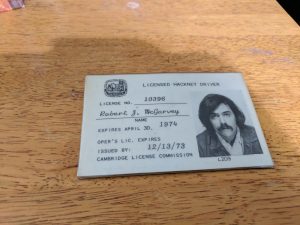Delta Is Betting You Will Pay Your Own Money for Better Seats. I’d Bet You Won’t
By Robert McGarvey
Delta Airlines is betting big that you will dig into your own pocket to pay to upgrade your seat – and they say they took in $80 million last year after they allowed customers to upgrade after purchase.
They also say they will begin allowing passengers to pay for upgrades with miles.
Are you on board with this?
The problem of course is that many employers and clients simply refuse to pay for upgraded air. When I began in the workplace 40 years ago, the standard policy – at two of my first employers – was that if a flight was over 2 hours, they would pay for first class (business class had not yet caught on).
But now I have exactly no clients who will pay for upgraded air. To anywhere. That means if I’m flying from Phx to Sin, it’s in coach. For maybe 21 hours. Ouch.
If I want upgraded comfort, it comes out of my pocket.
Same for you probably.
Delta insists we are opening our own wallets.
Are you?
I cannot recall ever paying my own money to upgrade air seating. Never. I do recall many cases where I used miles to buy upgrades but I rationalized it with the thought that client X had in a way bought the miles because I earned them on flights paid for by X and if I used them on another flight for X, all was right with the world.
I am not sure I am entirely correct about that. But it’s how my brain worked.
And mine is a brain schooled in travel by hardened 1970s road warriors who were sure it was a sin to spend one’s own money on a business travel.
Thus my deep hesitation to pay for a better airplane seat.
Indeed, I still cannot wrap my mind around paying actual cash, from my pocket, for a better seat. I just will not do it.
Will you?
Skift, by the way, reports that Delta will generate two receipts. One for the base fare, one for the upgrade. The idea is to hand in for reimbursement the base fare receipt and thus dodge any hassles from bean counters.
Skift also quoted Delta’s president this way: “the goal is to avoid ‘driving to the bottom’ by selling an airline seat as a ‘commodity.’ Instead, it wants to attract “people who are discerning who want to buy premiums and products and services.”
But wait. Airline seats on US carriers are “commodities” and are fungible. Telling me they aren’t is presupposing massive gullibility on my part.
Interesting, however, is that per Delta’s CEO – as quoted by Skift – the carrier a few years ago sold 15% of its domestic first class seats (the rest were given out to folks like me, typically for no payment at all). Now Delta sells about 50% of its upfront seats and it wants to sell more.
CEO Ed Bastian added this: “One of the reasons why we moved into the paid upgrade opportunity, not only does it allow customers to provide certainty by being able to buy the experience, but we also have a very good product in our Comfort+, which we didn’t have in the past, so that for many of our loyal customers that were unable to upgrade, they now have a place where they can actually have an enhanced experience, versus prior years where you’d be in the main cabin.”
I’m still not in. I long ago decided I could handle the six hour discomfort of flying from LAX to EWR in coach – it’s not that bad. Really. I don’t eat the food upfront, I don’t drink alcohol on business flights, and I don’t want to sleep on domestic flights. I don’t do any of that in coach either, but so what?
So I can get what I want, at a cheap price, from coach.
Why would I spend my money to get a slightly upgraded experience upfront?
My answer is that I won’t.
What’s yours?
When I see subheads like this – from CNBC – “Passengers are opening their wallets” what I smell is airline spin. Say it’s so loud enough and often enough and it just may be believed.
But not here.

